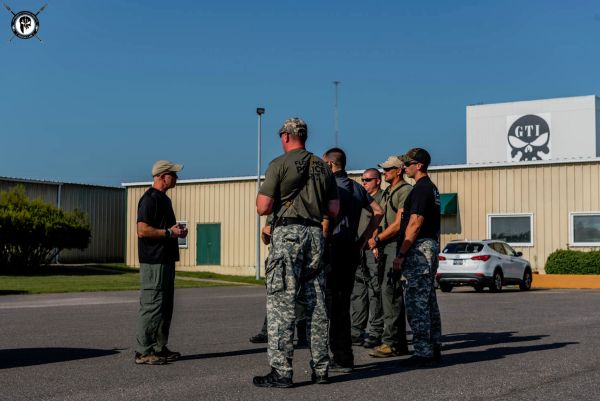|
Can You Teach an Old Dog New Tricks? May 15, 2019 By Dennis O'Connor, Director of Training  Can you really teach an old dog new tricks? Having been involved in teaching tactics and training law enforcement personnel since 2006, it baffles me when I hear an officer try to explain why he or she is having difficulty grasping a new tactic by saying "We have always done it a different way and that's why it is hard to change". No I get it!! They have repeated an action, time and time again so the conscious thought to complete that action is now a sub-conscious thought (change thought to: reaction; response; habit?) causing them to consistently revert back to a learned way. So the next question I ask is, the person who taught you this action or tactic, what was their explanation to you as to why you do it that way? The typical response is "I don't know, they never explained, they said that's the way we do it". As an instructor, my head is now swimming in thoughts of who would ever do this type of teaching or training and how can I change these habits. Or how can I effectively instill different tactics and responses in this student. So let's break this concept down utilizing scenario based training. (Scenario#1) You are driving around in a 2013 Dodge Ram pickup truck with no power windows or locks. Your music is an AM/FM radio with cassette player. Your only navigation is what's on your iPhone. You drive past a Ford dealership and see a brand new Ford-F150 Raptor with power windows, door locks, AM/FM radio stereo and a CD changer. Along with everything else there is a backup camera and a built in navigation system. You go and talk to the salesman and he cuts you a sweet deal and you drive off the lot with a brand new truck. Now as you get into this new truck, you become overwhelmed with all this technology. Ask yourself, are you willing to learn how to use all this new technology even though it may seem foreign at first, or are you going to revert back to what you learned to use in your old truck despite the advanced technology now at your fingertips? (Scenario#2) You as a police officer have been equipped for years with the 870 Remington pump shotgun as a patrol shotgun. You have learned over time the safety features, how to car load, the difference between buck shot and a quarter ounce rifle slug. You have fired this weapon on the range every year to qualify and have no issues in qualifying. Your department made and announcement today. They will be replacing your patrol shotguns with new M4 rifles. They hand you your new M4 rifle. It is sexy looking, it now has a 14.5 inch barrel, selector switch, magazine well for a 30 round magazine, charging handle, magazine release button, forward assist and a collapsible stock. It is gas operated with a muzzle break on the end. Do you hand this fine precision piece of machinery which fires a 5.56 NATO round with such accuracy back, saying I can't shoot this because it's not what we have used and I'm not used to it? No, of course not, you spend time on the M4 and learn to shoot it and manipulate the working parts because it is more advanced weaponry and will better serve you in the field. As in anything, in law enforcement there will be changes in technology, policing styles and tactics. As trainers we need to ask the who, what, why and where? Who developed this tactic, what type of tactic is it and its application, why was it developed and for what need and where was it developed (law enforcement or military). Yes, all tactics need to be vetted before being presented and taught. It is our responsibility as instructors to critically assess (or examine with a critical eye) a new tactic to understand the strategy and intent behind the tactic to ensure it is appropriate and effective for the scenario at hand. Once a tactic is vetted and incorporated in a training environment, instructors need to explain the, who, what, why and where to the end user, the student. It is necessary for them to understand and learn that these new advances will help them to succeed in the profession they have chosen. Ensuring that students understand the "why" behind a teaching and what the intent of an action is can help them absorb new tactics and break old habits that weren't serving their purpose. Change and advancement is necessary to meet and defeat the evil that plagues our society, for our adversaries do not sit idle. So the question still remains "Can you teach an old dog new tricks?" the answer is yes, as long as the old dog is open minded and willing to understand that to operate and succeed in a challenging and dangerous environment, change is necessary. Students should feel a responsibility to challenge a teaching to truly understand how its use will achieve the desired outcome. In turn, it is incumbent upon instructors to be ready to meet students' questions and be prepared to communicate the why behind every tactic and method we teach. Together we can promote and reinforce smart tactics to meet the challenges of our dynamic environment in order to defeat our enemies. |